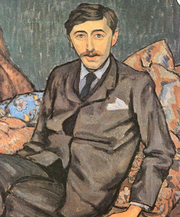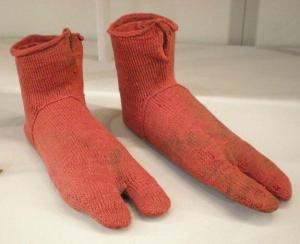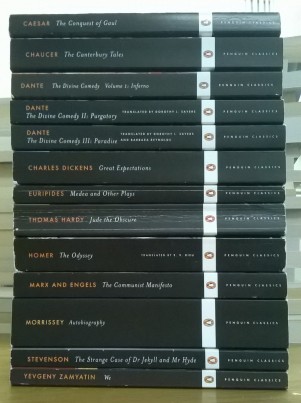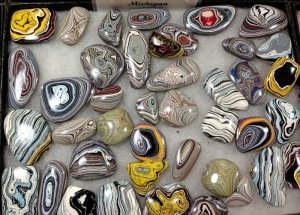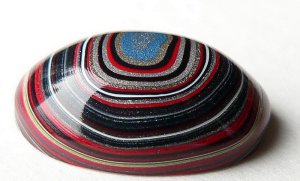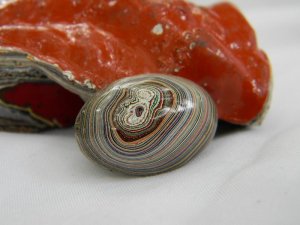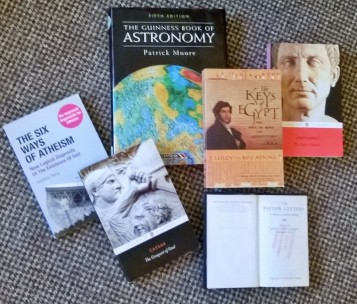I dislike Michael Gove for a number of reasons. For one, he is a Tory. Also, as a member of staff in a secondary school, I can see first-hand just what an adverse effect some of his ideas and policies are having on the school, the teachers’ moral, and the students’ stress levels. However, as has been widely reported in the media over the last few days, he’s now decided that English Literature should be buggered about with. However, as with his views on the History syllabus several months back that got the country seething, this worries me due to its narrow, blinkered, and agenda-laden undercurrents.
It has long been part of the English GCSE syllabus taught in many English (state) schools that literature from other cultures and societies is compared and contrasted with that from our own. For example, when I was dong my GCSE’s, I studied a cluster of poems called ‘Poems from other Cultures’, which included works written by English speakers round the globe, and focussed upon issues that affected the society in which they wrote, such as apartheid, the Vietnam War (and its effects upon the Vietnamese people), superstition in an Indian village and homesickness when moving from the Caribbean. I also studied both modern and classic English/Irish poetry, John Steinbeck’s ‘Of Mice and Men’, J.B.Priestley’s ‘An Inspector Calls’ and R.L.Stevenson’s ‘The Strange Case of Dr Jekyll and Mr Hyde’. It is perhaps clear from this little list that the focus of these texts was upon those written by English writers. Having just assisted several Y10 students through their GCSE English Literature papers, I can attest to the even greater focus upon English writers now, with the poetry not taking the form of two clusters, with one being foreign, but one cluster with predominantly English writers in it. The books studied are the same as those I studied, but again here the weighting is clearly 2:1 in favour of British writers (Stevenson being Scottish- he may class as foreign soon, I don’t know). However, Gove in his wisdom has decided that there is too much focus upon American texts such as ‘Of Mice and Men’, ‘To Kill a Mockingbird’ and ‘The Crucible’, and these should be taken off the paper in favour of all English texts. Now- okay, I can sort of see his point: not enough students are interested in or know much about the English ‘greats’ such as Austen and Dickens, and they should learn about our own cultural heritage before concerning themselves with other people’s. However, this falls down for me in several ways. From the practical point of view, Dickens is loooonnnnngggggggg. Apart from the Christmas stories, Dickens wasn’t really known for writing concise works, due in part to their initial publication in serial form. This means that it would be impossible to study an entire text of Dickens at GCSE due to the other constraints of the course and the teaching schedules of schools, meaning that students would need to be taught key passages of chapters and have to fill in the blanks with brief summaries, or read the text in their own time (which many students wouldn’t bother doing). As such, it would not be possible for the overall feel of the text to be gleaned, or for themes, images and ideas to be traced effectively through the course of the text. ‘Of Mice and Men’, on the other hand, is a short text. It is easy enough to read in class, with a plot that can be held in the head amongst the million and one other exam topics that students have to memorise, and enough themes and literary devices to fill several exercise book of essays. It is a good text that easily grabs students attention, proves popular, and is a jewel to write about. However classic they may be, Dickens and Austen are not quite as student (and more importantly teen) friendly- pick the wrong text, and you could nurture a hatred of literature that could last a lifetime, rather than inspiring a love that lasts a lifetime.
However, the thing that bothers me more is the problems that such Anglo-centric teaching could cause. I also hold this view on the focusing of the History syllabus on the ‘Great’ in Great Britain, which brings this in nicely. It is a plain fact that Britain is a multi-cultural nation. There is no getting away from this, and is indeed something to be celebrated rather than derided, as some political parties seem to think. As a result, many children in our schools do not come from British backgrounds, and so by focussing the curriculum solely upon the British Isles, there is the very strong possibility of isolating a very big part of the school community. Do students whose families have come over to Britain following the outbreak of war in Afghanistan and Iraq wish to sit through a History lesson where theory hear how ‘Great’ Britain was when it had an Empire and ruled their homelands? Or would people wish to study world history that focusses upon the positives and negatives of a nation, period or event, rather than a biased victors tale? They say that history is written by those who win, but that does not mean to say that we should take this a Gospel. Good history involves the criticism of evidence and the balancing of facts. That is what history does. It is unbiased, and does not plug an agenda. If teachers now are unlikely to praise the leaders of Britain in the World Wars, it is not due to a lack of pride in the nation, but rather down to their ability to understand that what these great people may have done in the past was no always right. We can learn from the past and our mistakes. Should we teach that Hague was a good general who won the Battle of the Somme, and cover up the thousands of Allied and German dead, or should we assess how well he did his job, looking at both the positives and the negatives in order to make an informed decision? By removing this option from students through the glorification of our national past, we are doing our young people a disservice, and taking away from them an important life skill, of being able to critically interpret evidence and information to make their own interpretations and conclusions rather than blindly following one course and one message. Or is that what the Government want?
In Gove’s manifesto on History, he also claimed that we as a nation should be proud of the Empire that we once owned an the position that we held on the world stage. Well- I’m sure that UKIP and the BNP would love that view of our past, but it is incredibly naïve and somewhat foolish. It is difficult to read an anthropological ethnography such as Evans-Pritchard or Malinowski without finding the shadow of Colonialism looming omnipresent and yet unmentioned over the texts. Much 20th century anthropology is tinted with its effects or after-effects, and indeed many of the world problems are due to the repercussions independence has had on these countries. We would be blind to try and pretend that the time of Empire was one of fearless explorers claiming savage lands for Queen and country, rather than seeing it for the danger, violence, barbarity (on our part as colonial overlords) and cultural repression that it was. Read ‘Heart of Darkness’, ffs.
Another thing that Anthropology teaches us is that to understand ourselves as people and as a society, we need to first understand the world. This is where Gove and his removal of American literature from the syllabus falls flat. Yes, we need to learn about our own culture in order to appreciate it, of course we do- but we also need to understand and appreciate other cultures in a reciprocal manner, to learn and grow as people. We can learn lesson from American and German, Chinese and African literature that we never could from our own. We use the Greek and Roman Classics as the foundation stones to much or our culture an society- should we dispense with these too? The key thing that Gove seems to be missing out, is that English Literature is not the study of Literature that is English (if it was, then we couldn’t study Yeats, or Heaney, or Stevenson), but the study of Literature written or translated into English. We should embrace and value the diversity and colour of language and the written word, and foster this passion and love in our pupils and students and children, not whitewash it.
Just one last point. Steinbeck’s ‘Of Mice and Men’ is set after a global economic recession, and focusses upon two itinerant farm workers on what are effectively zero-hour contracts, unable to move socially and unable to reach their goal and dream of owning their own property. The work suggests that dreams and ambitions are useless and futile, with circumstance being the cause of people’s misfortune rather than the desire and perseverance of the individual. Gove wants to drop this. Go figure.

Image: timeshighereducation.co.uk

